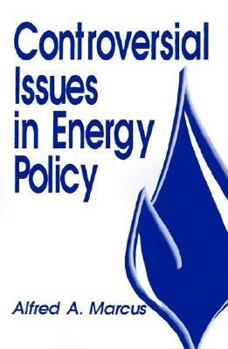Controversial Issues in Energy Policy
Select Format
Select Condition 
Book Overview
A key long-term challenge faced by the United States and other leading world economies is breaking the link between economic growth and oil consumption. The energy price shocks of 1973 and 1979 showed the fragility of these dependent relationships and their impact on world politics. Alfred Marcus ably examines U.S. energy policymaking and reveals both the shortcomings and failures--as well as the surprising successes--of past energy-policy efforts. Following a review of events that transpired in the Persian Gulf after August, 1990, Marcus examines worldwide trends in energy production/consumption since the first energy-supply crisis of 1973. Ensuing chapters discuss the economics and politics of energy policy, the role(s) of markets and governments, and parts played by supplier and user nations from countries to cartels. Unique to this text is Marcus′s review of U.S. policies and reactions to energy shortages as compared with the experiences of other major consuming nations (Japan, France, and Great Britain). At a time when energy policy is among the most important issues in world politics, Controversial Issues in Energy Policy skillfully outlines new and enduring issues of energy policy for academics and students in public policy, political science, public administration, and economics, as well as policy makers. "Marcus provides a valuable insight into the dynamics of policy and politics around a vitally important resource." --Political Studies Association
Format:Paperback
Language:English
ISBN:0803939701
ISBN13:9780803939707
Release Date:September 1992
Publisher:Sage Publications
Length:158 Pages
Weight:0.56 lbs.
Dimensions:0.6" x 5.5" x 8.6"
Customer Reviews
1 rating
Great Resource for Information on Energy Policy
Published by Thriftbooks.com User , 25 years ago
Although this did not provide me with the most personally enjoyable reading time, I did value it for its purpose: a discussion of energy policy. Those specifically interested in the energy crisis and petroleum resources would find this textbook enlightening.






